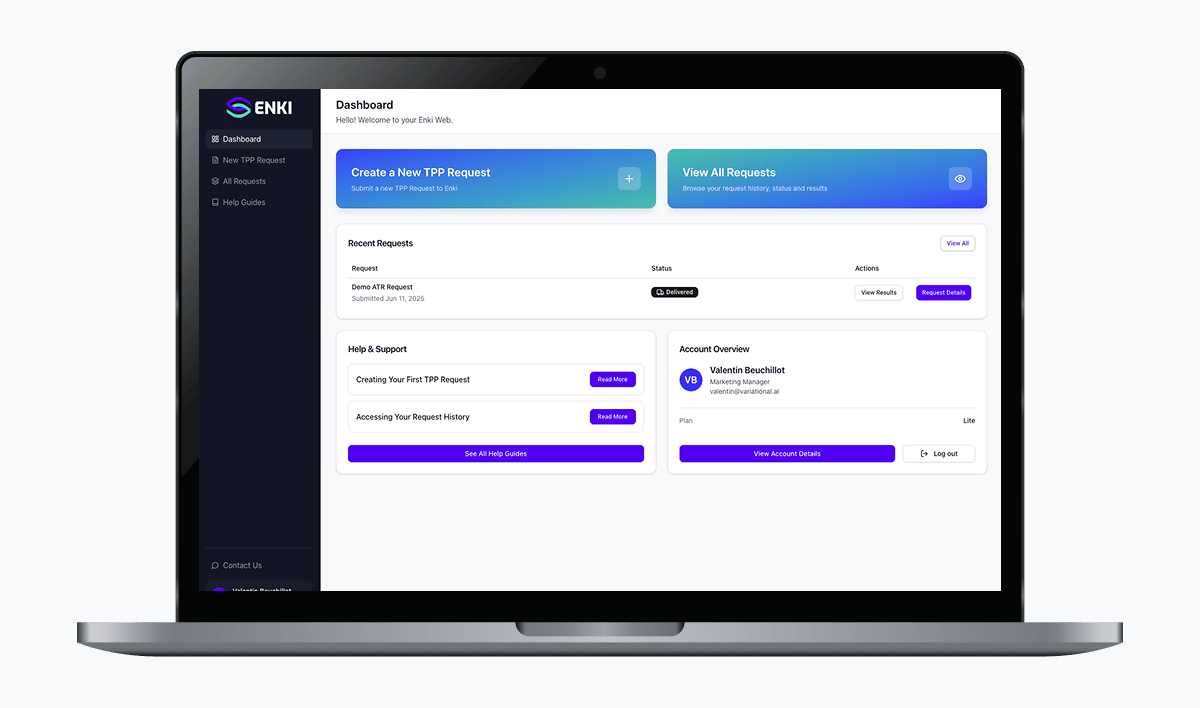Merck Expands Variational AI Collaboration To Up-To-$349M Deal On Two Small-Molecule Targets
Merck converted an earlier evaluation of Variational AI’s Enki platform into a collaboration to generate and optimize small-molecule candidates for two undisclosed, Merck-selected targets. The agreement includes an undisclosed upfront and milestones totaling up to $349 million; Merck receives exclusive rights to develop and commercialize compounds from the program. The move sits alongside Merck’s separate use of generative models for clinical document drafting.
Merck previously assessed whether Enki could propose molecules that match target product profiles (TPPs). In the new pact, Variational AI will apply its machine-learning algorithms to Merck datasets to create generative models supporting work on targets characterized internally as “challenging.” The companies did not disclose the targets.
Variational AI has reported additional collaborations over the last year with Rakovina Therapeutics, ImmVue Therapeutics, Oncocross, and Life Chemicals, and Rakovina presented AACR 2025 data on Enki-generated brain-penetrant ATR inhibitors. Separately, Merck has described an initiative with McKinsey/QuantumBlack to use large language models to generate first drafts of clinical study reports, with draft times reportedly dropping to about three–four days from two–three weeks.

According to Variational AI, Enki is a generative AI model for small-molecule discovery, trained on structures and properties from 700+ targets, proposing novel, synthesizable compounds to a defined TPP.
Variational AI, based in Vancouver, Canada, announced a $5.5M seed extension in February 2025 led by Nimbus Synergies with participation from Merck Global Health Innovation Fund and others. Enki is described as a generative foundation model for small-molecule discovery that operates from a user-defined TPP and, according to the company, can begin without an initial project-specific dataset. The firm says Enki is trained on decades of experimental data spanning 570+ targets and uses active learning within the DMTA cycle (with Bayesian optimization) to iteratively refine designs. Reported project metrics include synthesizing and testing ~20 novel molecules within weeks, >50% hit rates, and ~90% synthetic success.
See also: [Interview] This Vancouver-based Startup Plans To Boost Drug Design With AI
In our earlier interview with Variational AI co-founder Handol Kim, he described Enki’s technical core as an ensemble of variational autoencoders and RNNs (LSTM/GRU with attention) using multi-SMILES representations with atom-level information exchange to build a nonlinear ligand-based pharmacophore intended to jointly optimize activity, ADME, toxicity, and synthesizability; at the time, he reported up to 3.3x gains on logP/QED optimization tasks versus competing methods and top performance on the NIH Tox21 toxicity benchmark, and framed the business model as delivering molecules—not code—with access fees, milestones, and potential royalties.
We track announcements like this—and what they mean for pipelines and platforms—each week in Where Tech Meets Bio, our newsletter on the AI-biology interface.
Topic: Industry Movers